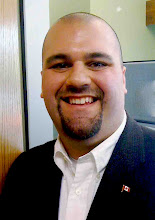Farkas seems to be ahead of the game. She seems on top of uses, and has good practical examples of how Wikis can be used in libraries. Her suggestions are good, however one of them made me wonder how practical, or how serious would adding a wiki to a library catalogue be? Would students vandalize (ie: add junk/spam, etc) to the wiki/comment on books or would it be controlled, having all students/users log in and know who is writing what, and where. Part of the wiki ideology is that anyone should be able to contribute, no matter who they are, and "Wikipedia" has worked that way as anyone can create an alias and write about what they want. So how could you control who is writing in the wiki-catalogue/opac? However, Farkas seems to be on top of uses, and practicalities. When I did my coop with NRCan, we went through a lot of ideas and uses of wikis and I had read some material by Farkas a while ago, so I am not surprised to read these articles. Also, she has a book that has been long awaited (it might be out now) on Social Software in Libraries.
The Schiff article is also quite informative, and a good description of the history and progress of Wikipedia and the role that wikis can have in society. How information can be accessed, and added to a database, and also show how much information can be attained, when there seems to be no or very limited barriers.
Wednesday, June 13, 2007
Subscribe to:
Post Comments (Atom)



2 comments:
I couldn't agree with you more, Farka really is keeping up with Jones. I also wonder what would happen to a library wiki if it was 'open'. Perhaps giving users password at registration would help control vandalism. Even though all wiki's should be open, I think when it comes to a public sector wiki we need to be conscious of the type of comments that are posted.
Definitely, even wikipedia has over 1000 people who monitor the content, there has to be some content management and monitoring, however, there is also room from freedom of speech, and the opportunity to be creative.
Post a Comment